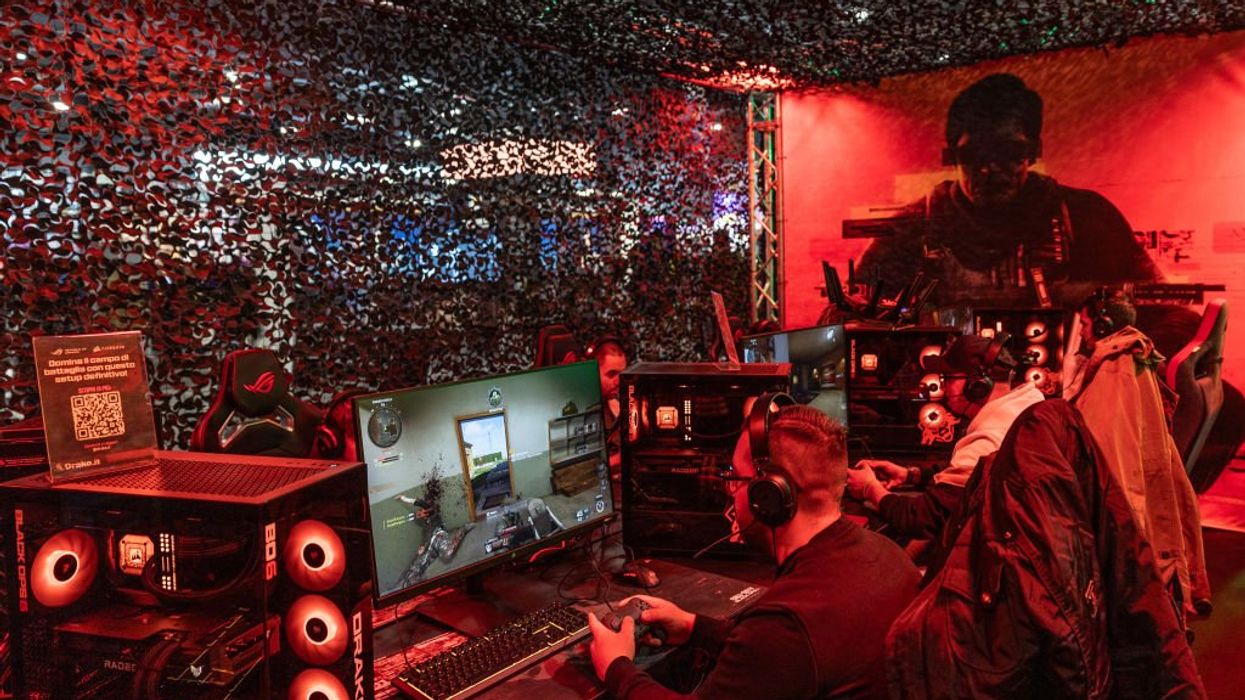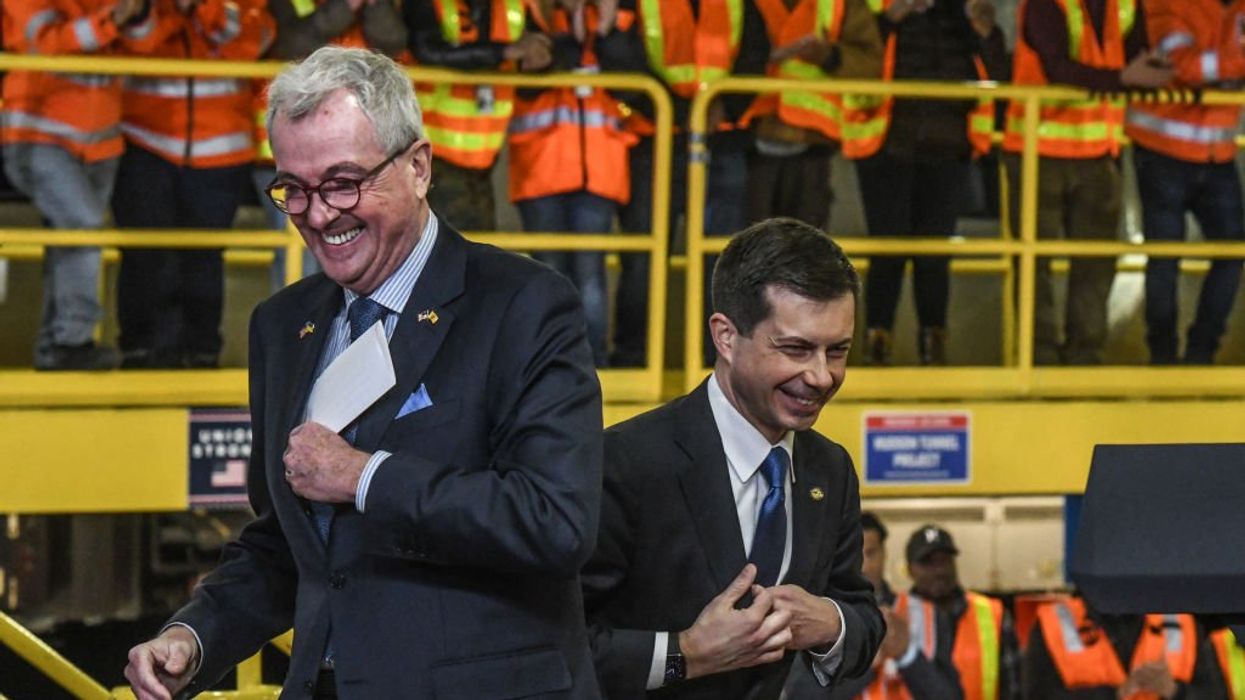
© 2024 Blaze Media LLC. All rights reserved.
Tom Friedman breaks it to the Upper West Side: Cold War is on and Commies are still a problem
June 24, 2015
"The 1980s are now calling to ask for their foreign policy back because the Cold War’s been over for 20 years."
–President Obama, during the third presidential debate, Oct. 22, 2012
Apparently, the New York Times' Thomas Friedman wasn't listening.
In his column today, "Cold War Without the Fun," Friedman reminds his liberal audience that everything is not sunshine and lollipops, regardless what the man they put in office tells them:
Let’s see, America is prepositioning battle tanks with our East European NATO allies to counterbalance Russia; U.S. and Russian military planes recently flew within 10 feet of each other; Russia is building a new generation of long-range ballistic missiles; and the U.S. and China are jostling in the South China Sea. Did someone restart the Cold War while I was looking the other way?
Those on the right who have been sending up warning flares (think: Mitt Romney, John Bolton, Glenn Beck) and enduring the mocking that comes from left-wing Pollyannas aren't surprised. They have repeatedly told the world that we are looking at a Cold War resurgence. Apparently that's news to Friedman (emphasis added):
[T]his post-post-Cold War has more of a W.W.E. — World Wrestling Entertainment — feel to it, and I don’t just mean President Vladimir Putin of Russia’s riding horses bare-chested, although that is an apt metaphor. It’s just a raw jostling for power for power’s sake — not a clash of influential ideas but rather of spheres of influence: “You cross that line, I punch your nose.” “Why?” “Because I said so.” “You got a problem with that?” “Yes, let me show you my drone. You got a problem with that?” “Not at all. My cyber guys stole the guidance system last week from Northrop Grumman.” “You got a problem with that?”The Cold War had a beginning, an end and even a closing curtain, with the fall of the Berlin Wall. But the post-post-Cold War has brought us full circle back to the pre-Cold War and the game of nations. There was a moment when it seemed as though it would all be otherwise — when it seemed that Arabs and Israelis would make peace, that China would evolve into a more consensual political system and that Russia would become part of Europe and the G-8. That was a lifetime ago.
Now Western reporters struggle to get visas to China, no American businessman with a brain takes his laptop to Beijing, Chinese hackers have more of your personal data now than LinkedIn, Russia is still intent on becoming part of Europe — by annexing a piece here and a piece there — and the G-8 is now the G-1.5 (America and Germany).
Naturally, Friedman largely (though certainly not entirely) blames the West — despite the fact that Putin is old-school Soviet:
When did it all go sour? We fired the first shot when we expanded NATO toward the Russian border even though the Soviet Union had disappeared. Message to Moscow: You are always an enemy, no matter what system you have. When oil prices recovered, Putin sought his revenge for this humiliation, but now he’s just using the NATO threat to justify the militarization of Russian society so he and his fellow kleptocrats can stay in power and paint their opponents as lackeys of the West.
How do we fix it, according to Friedman? Ideas on his list are, among others, a nuke deal with Iran and expanded "U.S.-shaped" (read: Obama-shaped) free-trade agreements with Asia and Europe:
In short, the attraction of the U.S. economy and the bite of U.S. sanctions are more vital than ever in managing the post-post-Cold War game of nations, including bringing Iran to nuclear talks. We may be back to traditional geopolitics, but it’s in a much more interdependent world, where our economic clout is still a source of restraint on Moscow and Beijing. Putin doesn’t disguise his military involvement in Ukraine for nothing; he’s afraid of more U.S. banking sanctions. China doesn’t circumscribe its behavior in the South China Sea for nothing; it can’t grow without exporting to America. It’s not just our guns; it’s our butter. It’s why we should be expanding U.S.-shaped free-trade deals with Asia and Europe, and it’s why the most important source of stability in the world today is the health of the U.S. economy. We can walk softly only as long as we carry a big stick — and a big wallet.
Two things Friedman can't bring himself to say:
#1: Romney and the right have been correct about Russia all along. Let's listen to their ideas.
#2: Reagan knew how to deal with this. We don't have a Reagan.
–
Follow Chris Field (@ChrisMField) on Twitter.
Want to leave a tip?
We answer to you. Help keep our content free of advertisers and big tech censorship by leaving a tip today.
Want to join the conversation?
Already a subscriber?
more stories
Sign up for the Blaze newsletter
By signing up, you agree to our Privacy Policy and Terms of Use, and agree to receive content that may sometimes include advertisements. You may opt out at any time.
© 2024 Blaze Media LLC. All rights reserved.
Get the stories that matter most delivered directly to your inbox.
By signing up, you agree to our Privacy Policy and Terms of Use, and agree to receive content that may sometimes include advertisements. You may opt out at any time.



